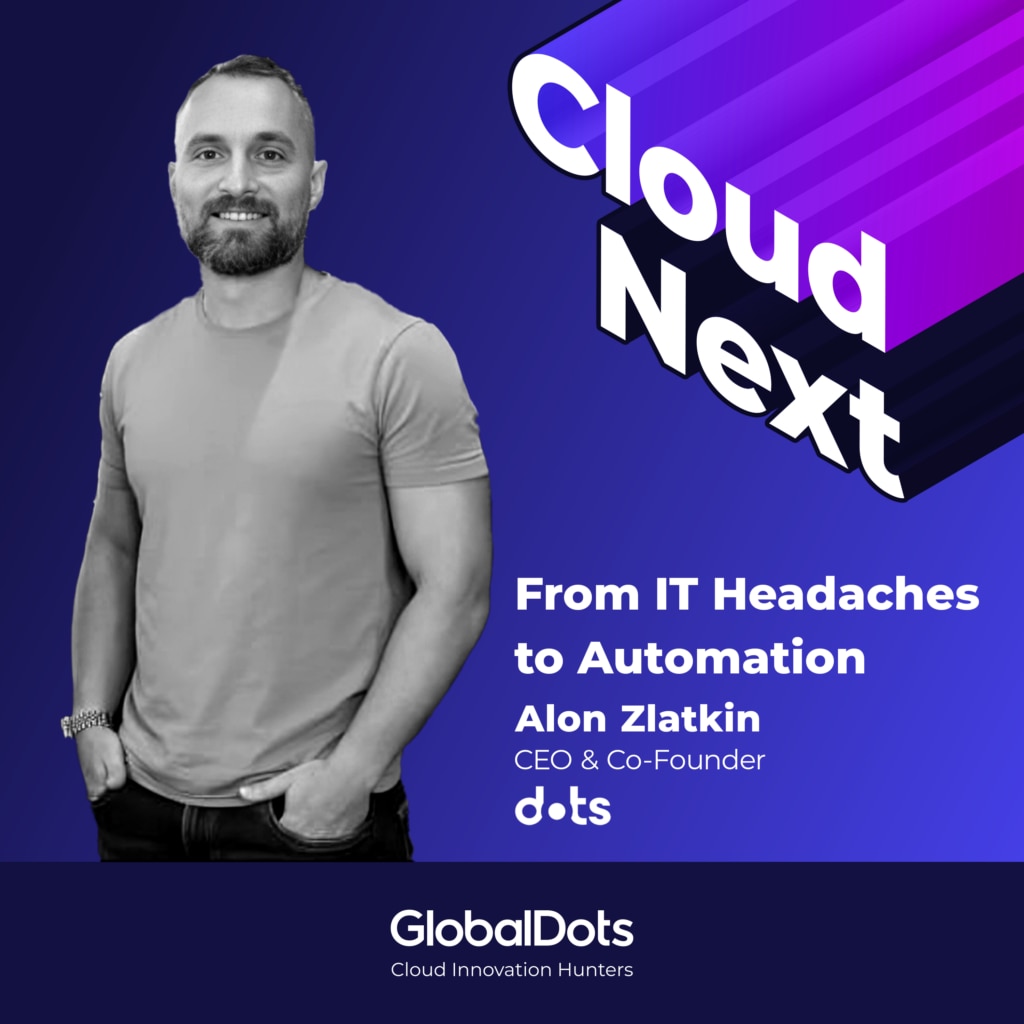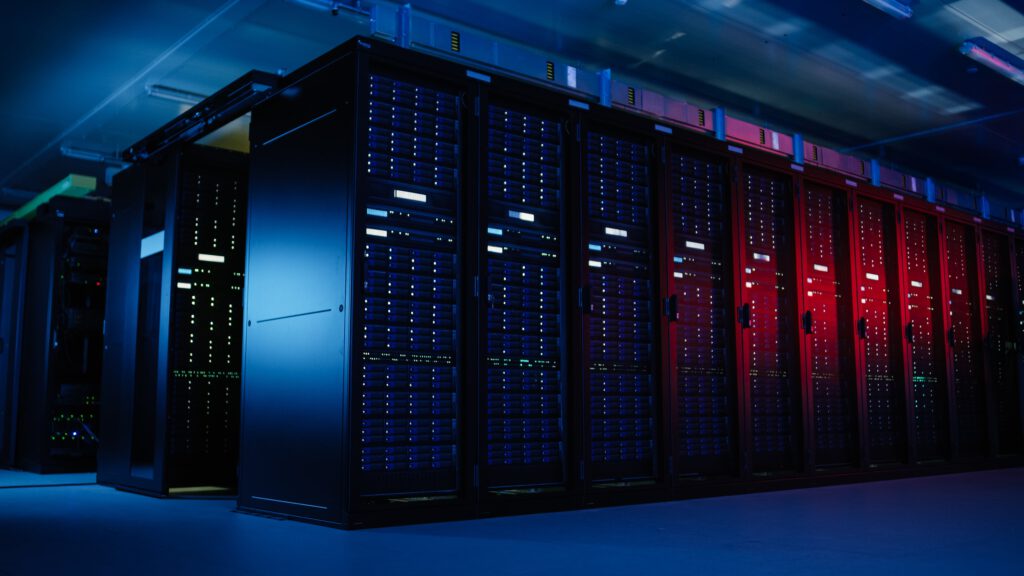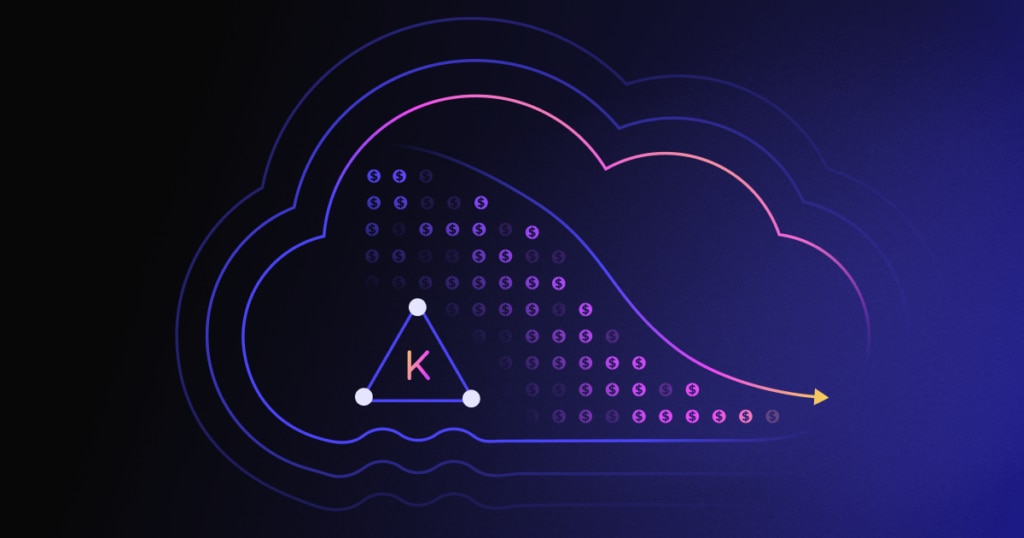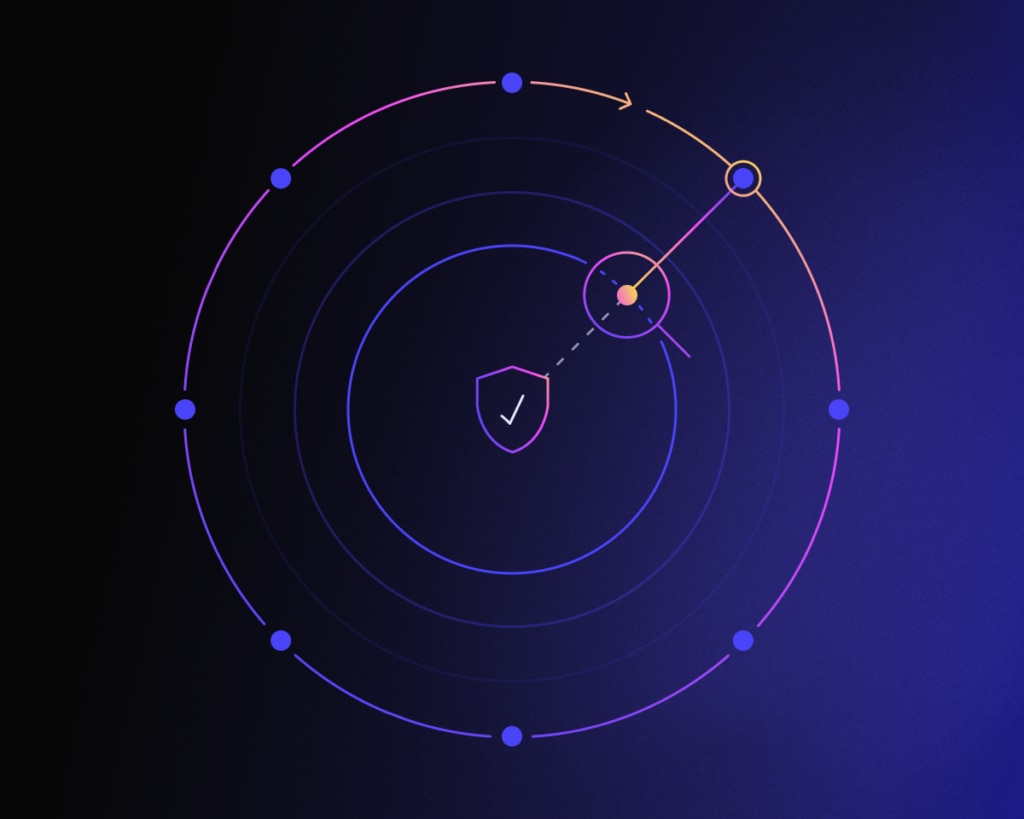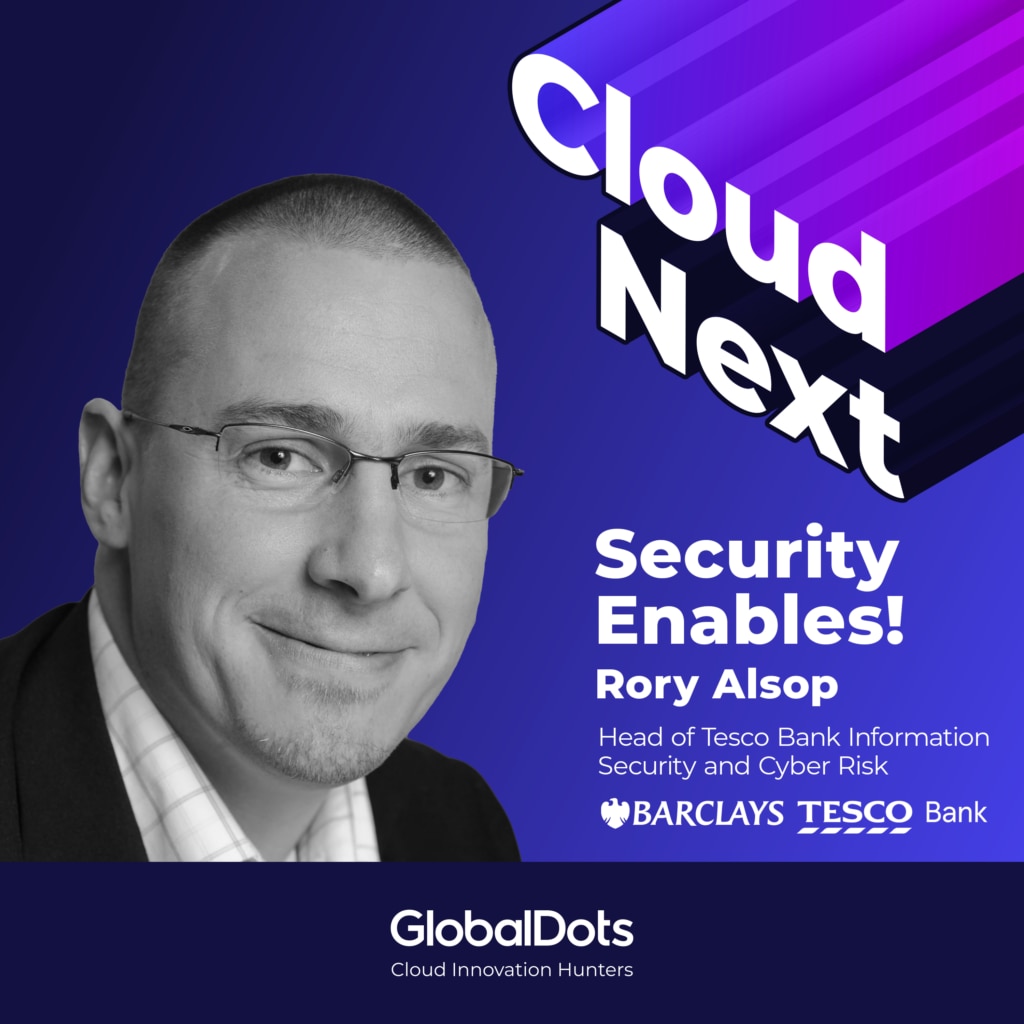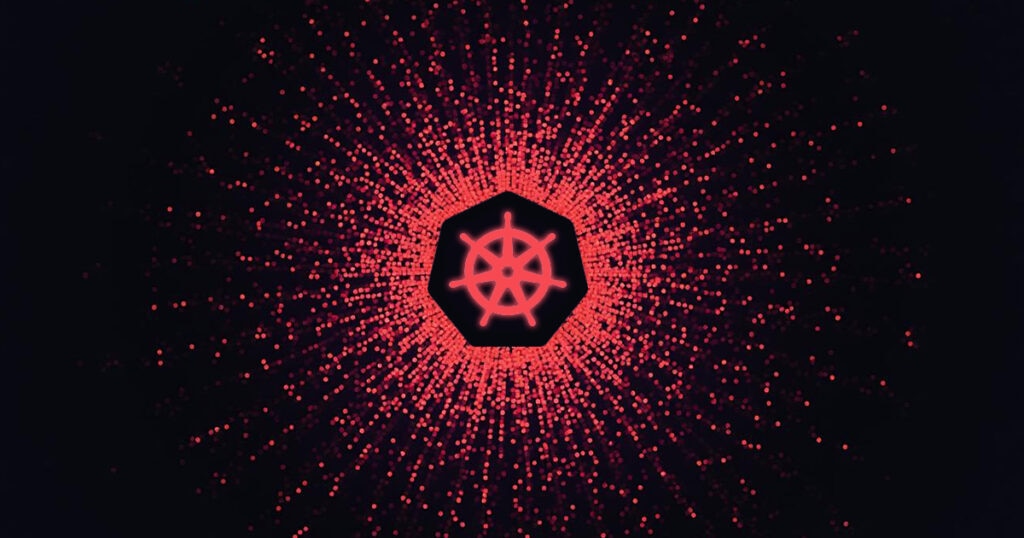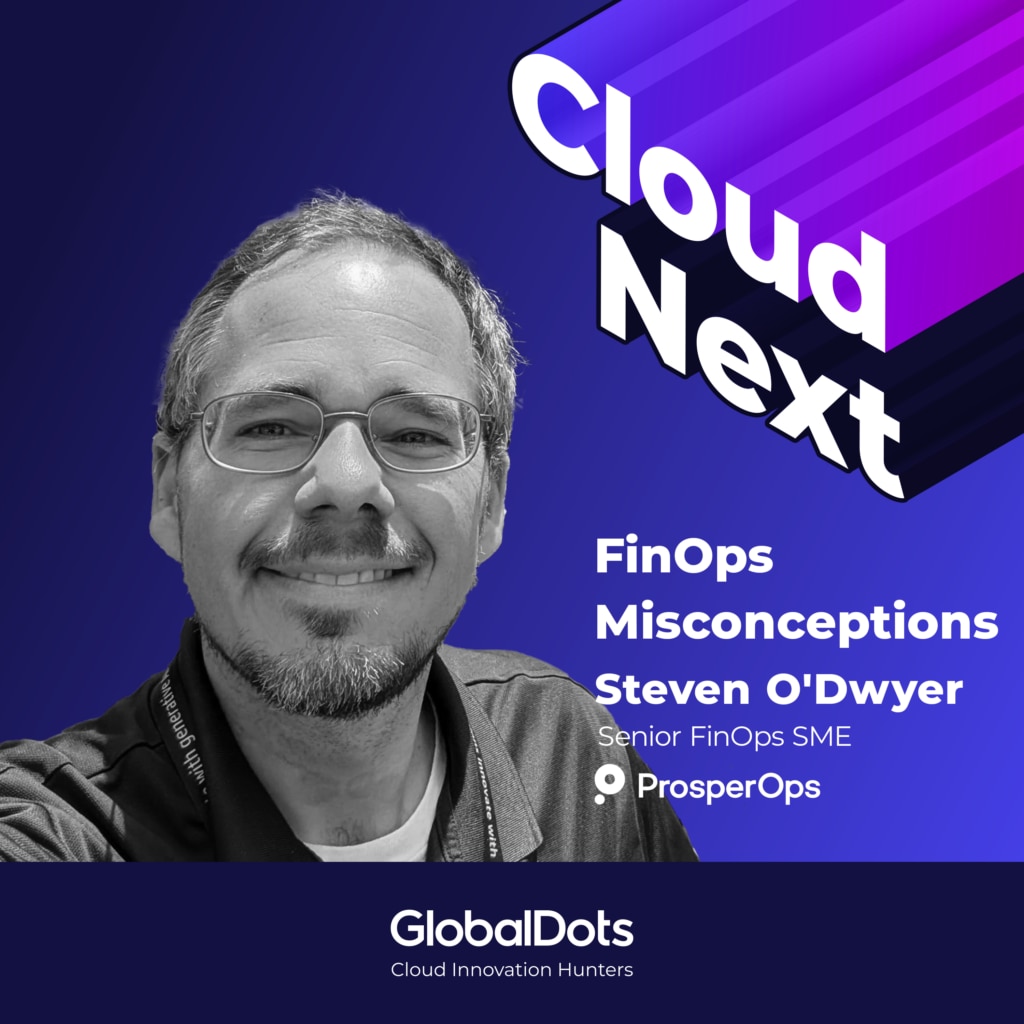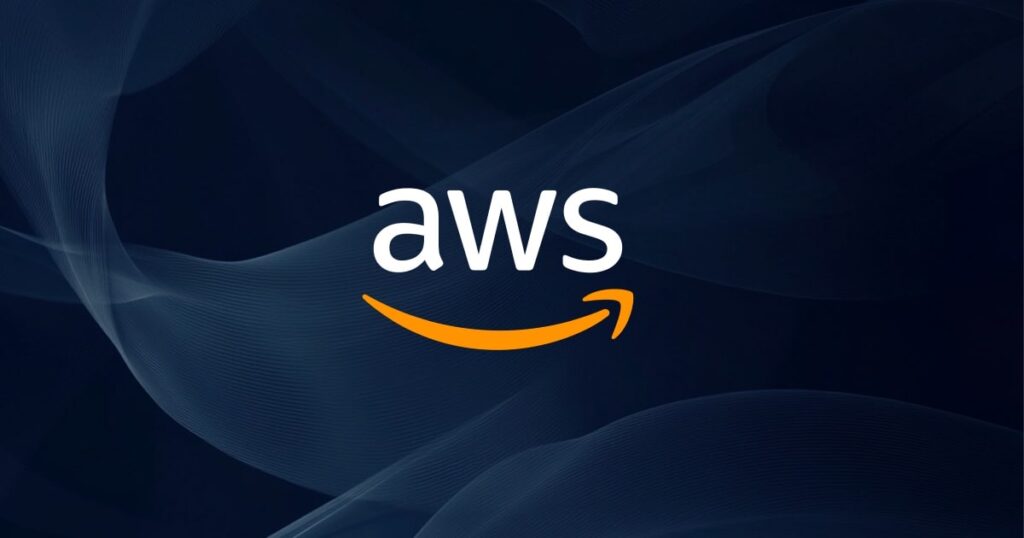This transcript was generated automatically by AI. If you find any mistakes, please email us.
Announcer
0:00:00 Hello everyone, you're listening to Cloud Next, your go-to source for cloud innovation and leaders insight brought to you by GlobalDots.
Ganesh
0:00:15
Imagine the intricate web of a global tech network pulsating with data, connecting millions, underpinning the digital presence of an online giant. In this realm, a single misconfiguration can cascade into a tidal wave, impacting services worldwide. I'm Ganesh The Awesome, and in today's episode, we're delving into the high-stakes world of network management at Wix, where every decision and each adjustment can have far-reaching consequences. For those of you who have been living under a rock for the last decade,
Ganesh
0:00:46
Wix is one of the largest website building and hosting companies on the planet. Joining us today is Dor Cohen, Head of Networking at Wix. Together we'll unpack the challenges of managing network operations on a grand scale, from balancing internal and external project demands, and managing risks against costs,
Ganesh
0:01:03
to scaling up infrastructure while maintaining a seamless service. Dor, welcome to the show.
Dor
0:01:09
Thank you, Ganesh. Very excited to be here.
Ganesh
0:01:12
Wonderful. So, to kick us off, can you walk us through your approach to risk management in such a vast infrastructure at WIPs and how do you balance cost, resilience and downtime in such an environment?
Dor
0:01:26
I think that risk management is one of the major key concepts of managing, of being a manager in general. We need to remember that risk management is very important in our also daily life. Everybody here is making a decision based on risk and consequences, right? And it's even more emphasized in the business and the technology world,
Dor
0:01:48
and it even harder and complex when you go up the ladder. So as we live in a world with limited resources, we just need to remember that we can get it all, right? There is one decision that need to be made and the other one will not be made, and probably we will lose from not making both of them.
Dor
0:02:05
And again, if you can't do them both, you need to decide. And this is where risk management comes to the plate and you need to be able to assess the risk and based on different vectors like cost, resilience, performance, the velocity, et cetera, security, for example, you need to understand what vector is pulling right now the most.
Dor
0:02:30
What vector is more important to the company or maybe to you. We also need to remember, it's going to sound materialistic, but we need to remember that at the end of the day, everything can be converted to money. And this is somehow the way I'm doing it. So for example, if you have a downtime in your infra, that's GPV loss, or that's users not coming in. So this is loss of money.
Dor
0:02:54
Obviously, when you do a robust infra, you need to invest. And there is consequences of making one decision over another. So if I give an example of two projects, one is cost optimization project, the other one is to improve resilience. Then we need to understand that doing the cost optimization project might cause, I don't know, downtime to your business, which eventually might cause you to lose more money that you
Dor
0:03:21
save in the cost optimization project. So you as a manager need to be able to balance and to make these assessments, obviously, with your upper management, which are putting the weights on what is more important for them at that time. We need to remember there is no one answer to what needs to be done. It's very hard to predict and it's very hard to tell in retrospect if it was a good decision
Dor
0:03:47
or not because we only live one scenario, right? But at the end of the day, we need to remember that you need to at least give all the information to the stockholder that need to make the decision and then probably trust your gut when you make it but always try to convert it to the money impact and the probability
Ganesh
0:04:06
of the thing to happen. I actually love the idea of linking everything to money. It makes not only a compelling event for you looking at it but also if you're looking at tooling specifically and raising budgets from internal departments or your boss or something like that. I always find it quite astounding that people are willing to spend money on things. Security is a great example. You might ask somebody for, you know, $50,000 a month for something to stop them getting ransomware, for example, a particular CNAP tool or something, which seems way too much money to spend and they're not happy to spend that
Ganesh
0:04:47
money. But then the risk, you know, the risk of ransomware and how much you pay is in the multi-millions of dollars if you're a large company. And having everything equated to money is a very nice approach. Yeah, it's very cool. Money is a good KPI. Everybody understands money.
Dor
0:05:05
Yeah, I want to emphasize that. So security is actually the hardest part, at least for me, to convert to money because it's always the risk of being exposed, which is actually game over sometimes. But it's also true for the velocity and basically, again, everything that we are doing. So the fact that you might choose a cheaper, less expensive product over another might sound very beneficial for the company. But if there are two engineers that need to support this less expensive project or service, sorry, then you will pay for that time as well.
Dor
0:05:42
So time is money, resilience is money, it's a materialistic world, we are here to make money and this is one of the best way to evaluate and do the risk assessment again with the probability of things happening.
Ganesh
0:05:54
So maybe my next question might actually be answered by the answer money, but looking looking at, you know, you're in charge of this global network where every single decision can have a huge impact. How do you personally prioritize all the
projects that are in flow?
Dor
0:06:12
Yeah, so I would say it's somewhat related to the risk management question that we've been talking about just now, but yeah, it is, and we need to remember that at least for me and for Wix, resilience is the most important vector. So, as I mentioned, we can convert everything to money, but there is probability and weight to each vector. So, resilience will get extra weight
Dor
0:06:40
at this moment of the time. So, I tend to prioritize based on the resilience, but again, there is the probability of things happening. And there is also the fact that we need to do the differentiation between long-term and short-term decisions. That does lead us somewhere else interesting because it's very difficult to get budget
Dor
0:07:08
for a long-term goal typically for people. So that's also an interesting topic for me because management is not interested in three years. If you have a budget plan for something as big as that, it's typically not as interesting
Ganesh
0:07:21
as something that's important today or for money today.
Dor
0:07:25
Yes, so it's all more of the same. So prioritizing projects has a lot of vectors to it. Of course, there is the risk management that you need to make when you make one decision over another. There is the different vectors that are pulling, which are, again, the resilience, cost, efficiency, performance, the velocity. And there is the external and internal project that you need to be able to balance.
Dor
0:07:49
There are stuff that you want to do for your own team, for example, to improve the velocity of my engineers versus an external demand from the company, right? And there is also the long term versus the short term project. There is stuff that I know that might take much more time and we'll need to postpone a other project. And there are sometimes things need to be done immediately.
Dor
0:08:15
So the way I do it in general at Wix, and this is one of my managers taught me that he just told me to write on a paper the way I want to see the group and the infrastructure without any restrictions. So imagine that you don't have any money restriction and I don't mean you have really unlimited but you don't need to think about money too much.
Dor
0:08:41
You have all the human resources in the world and just imagine the way you want to see your group and your infrastructure stack. And then aim there. This is your vision. This is where you want to be.
Dor
0:08:51
Look where you are at right now and try to make sure that every decision that you make and every project you take, even if it's a short term or long term, it should be toward this vision. Again, it's not a mathematical equation that you can tell what to do when and what to do first. But the idea here is that first of all, by the way, it's also important. Put it down on a paper, not necessarily a... you can do it with a digital paper,
Dor
0:09:18
but don't put it in your head and just daydream. Put it in a paper, see where you want to go, show it to people, ask their opinion, see if you're missing something, and then every project that you're doing should be
Ganesh
0:09:32
with one eye to this vision. I'd never really thought of it in terms of a business, or what a department like networking or security, to have a vision terms of a business or what a department like networking or security to have a vision board. Very cool concept, I like it a lot. How do you, we've talked about some short-term and some long-term aspects so it might be a short-term goal that's not in line with your long-term vision that has to be done for whatever. How do you, in a corporate environment or in a political environment and also with like in a, in reality we're in a budget constrained environment, it's nice to
Ganesh
0:10:36
imagine that we have infinite HR resource but we obviously don't. How do you balance that, your long-term vision versus these short-term quick wins?
Dor
0:10:44
It's not easy, but I say that you need to build, first of all, good trust with your managers because at the end of the day, the vision that you are planning to do, they need to be part of it. They need to know about it. They need to accept it. They need to agree on it.
Dor
0:11:01
And they might criticize and give you some ideas. You're not good there. And like, you need to fix that and maybe think about something that you didn't think. But as long as they understand where you're going, and obviously you break it down to milestones, even if it's 10 milestones, it doesn't matter if it takes you two years, but if you have the milestones and you can show and explain to them where you are going, what issue you are trying to
Dor
0:11:27
solve not only for now, but also for, let's say, generations in the future, they tend to understand and they tend to agree with you. And obviously if there is a task that will come from higher management that will give Wix, I don't know, a good advantage in the market. This is what we are here for, right? But again, it will never be against or instead of the long-term vision because if you will
Dor
0:11:56
only comply and do the short-term things, you will get the benefit of, I don't know, making the management happy, but you are gaining technical depth. So you need to be able to find a good mixture between quick demands and long-term vision. And I'll say that at Wix as an enterprise company,
Dor
0:12:19
we don't have usually such thing as quick demands. We try to understand the beneficial of every aspect from cost, from security. There is a big process of implementing stuff for two weeks because we don't want to make the wrong decision and then, you know, in a big infrastructure as Wix,
Dor
0:12:39
once you make a wrong decision, it will be very hard to cover for that later. So it needs to be done perfectly. The quality is very important at this stage of the company, in my opinion, at least.
Ganesh
0:12:47
make total sense and I have, I had a, like a nightmare recollection as you were describing then. I was with a company when we migrated into the cloud and we wanted to do everything as infrastructure as code and management, that was taking a little bit longer than people would have liked, obviously. And the order came down that we just had to get in more quickly than it was happening. So the management got what they liked it managed to get in within you know a week or two as opposed to having to wait like
Ganesh
0:13:26
the extra few weeks to make it a month and we held that technical debt then and we and it forever and it took literally forever to go back and fix that and those yeah those I don't know what's missing in the world to stop IT people getting bullied I would say or there is a there's a natural persona of a tech person and they tend to be more introverted they tend to not be so good at sales pitches and things like that I think there's a natural ability for them
Ganesh
0:13:57
to lose out even if they've got the more compelling argument to win they're not the biggest character. Do you ever find yourself in that position or any advice for people in that position?
Dor
0:14:07
Yeah, so first of all, I want to focus on the infrastructure as code because this is a painful story for all of us. And I'll say mostly for networking gear and networking engineers in general, because infrastructure as code in DevOps nowadays is a buzzword that is understanding and doing, I hope. But for the networking gear, I would say that it's relatively new,
Dor
0:14:32
probably less than 10 years. In my previous company, I've been to a company with a lot of data centers that I saw the transition to infrastructure as code. And you need to remember that for the management, for the company, it's a non-apparent value, right?
Dor
0:14:48
They don't understand the immediate value of infrastructure as code because it's the velocity. But if you are able to explain and show that in the future every task, project that need to be done will take, I don't know, half the time, 10 times the less, it's money. It's money that you need for human resource and for generally doing projects.
Dor
0:15:20
So you mentioned us being in this meeting room, usually losing the argument. So I think we tend to lose it, but if you will come, we need to try to come as prepared as possible with all the information. You need to be able, and this, by the way, for this we have the FinOps team, which helps us converting everything to money. I can show them two engineers doing this work every five minutes, every 10 months, whatever
Dor
0:15:48
it is, how much money it costs. The uptime, because of those and these incidents, how much it costs. The fact that you did a human mistake or because it wasn't in Friqs code, how much it costs. And then when you come with the money, you win the narrative. So you lose some, you win some, but show them the money. I love it.
Ganesh
0:16:10
Somehow the focus of the podcast is monetize everything, you know, make every KPI a piece of money, make every technical debt a piece of money, make every like the future vision, make that a piece of money. I work on a lot of projects, I know for sure that we don't see that. We see lots of metrics, we see lots of metrics and KPIs and graphs, but not so much completely adapting it to like a dollar value. Leads me quite nicely into another question. So the talking, you know, you're turning everything into a KPI.
Ganesh
0:16:51
Everything's got a dollar value on it. In companies like X, we saw Elon Musk take over. He went on a cost-cutting spree, and essentially pretty immediately, we saw global outages on the platform, which to be fair, used to be rare or almost non-existent.
Ganesh
0:17:08
How do you challenge, how do you face that? If when you're fighting for your budget, how do you know you've got sufficient resources to keep the lights on and have enough extra resources in stock for those emergency moments that might hit you?
Dor
0:17:22
Yes, so I think that, first of all, I don't know what Elon was doing there and I think it would be unfair for me to criticize such a person, but I can only assume that he put too much weight on the cost cutting on the behalf of resilience, right? But when we do cost-cutting it tweaks, it will be find the points where we can make us more efficient without losing the resilience.
Dor
0:17:50
So again, there is probability and the game of probability of what will happen and stuff like that, but we have a very good FinOps team, and this is really, they are the leading the industry in Israel. And they make it much easier for us to make the calculated decision.
Dor
0:18:08
By the way, there are a lot of projects which can be cost-cutting, but which one we should prioritize. So, this is something that they help us do. And again, it's not only the run rate on the different SaaS solutions, it's also the development that cost us the engineers and the GPV loss if in such case. So again I'm not sure what Elon was doing there but I guess he was prioritizing cost cutting over resilience. I can only assume and this is what we
Ganesh
0:18:37
see. Well wise words to him. Elon Musk does listen to the show by the way so anything you say does get directly back to him. So yeah there you go. Let's go back to your infrastructure for a moment, because we didn't touch on that. You obviously have a ridiculous number of websites hosted and a huge infrastructure. We talked a little bit about infrastructure as code and how that can help people get a more DevOps mindset and particularly relating to networking. Can you tell us about some bits of special magic that Wix are doing in order to either scale rapidly or adapt your infrastructure.
Dor
0:19:16
What's the secret sauce in Wix? What can you share? Yeah, I don't think there is a specific technology, but it's more of the mindset where it's less being a firefighting and in the meanwhile plan to the worst case. So again, it's not like I have a special sauce for making stuff scale easier or faster, but to begin with, when you create your infrastructure,
Dor
0:19:49
when you create your layout, you need to plan for the worst case scenario. So what if this, and there is the chaos testing methodology. So what happens if this dies, what happens if this dies, what happens if we need to be able to cope with more load than that, double the load, ten times the load.
Dor
0:20:09
There is not always a solution for that, but again, it's back to the risk assessment. What is the probability of getting ten times the traffic in one minute? So there is nothing fancy about it. And also, again, back to the firefighting tradition, when you are busy with firefighting all the time, it will just not work. You need to somehow get out of this tradition and plan to the future. And the firefighting comes from the fact that to begin with, the infrastructure that you built wasn't, I guess, good enough, or you didn't think
Dor
0:20:55
about this issue that might happen. So it's
Ganesh
0:21:02
not about the scaling first, it's about preventing it to begin with. I hope it helps. That's a great answer and generally speaking the number of people who are caught in firefighting dynamics is probably way larger, probably an order of magnitude
Ganesh
0:21:42
larger than those people that are working on their vision board. You know
Dor
0:21:48
it's far more common to see firefighters than vision board people. Great, so we
Ganesh
0:21:42
major operations that you did within WIX that you can share with us?
Dor
0:21:47
Yes, so I'm not sure we're supposed to talk about it too much but yes so WIX had its own DDoS protection stack and we still do but we had an idea to offload it to a certain SaaS solution. And I remember that it was around a year and a half ago, which, where we just started the migration, and we had this massive data attack,
Dor
0:22:12
and the SaaS provider didn't do its only purpose. I love, sorry, I love that.
Ganesh
0:22:19
When the SaaS provider doesn't do their only purpose, that's like my favorite thing. We had this recently, there's a company, it's one job was to optimize Kubernetes and it caused an outage with Kubernetes and you're like, you're a one solution product. Yeah, so, but I personally resonates with me. I love it. Sorry,
Dor
0:22:42
please continue. Yeah, and it's the fact that the thing is, it was a costly solution We expected a lot as we just started the migration. And because of the fact that we failed, like it didn't work quite well, there was a lot of tension and ideas to hold back and not to use it. And I remember that I was the one advocate that wanted to try it out because I wasn't sure that we need to keep maintaining by ourselves the DDoS protection stack.
Dor
0:23:15
So we gave it a few more months, and remember it was again, there was some discussion around it, and we, like, argument if we need to keep it or not. But I can say that insisting helped. So we're still using this provider, and it's now giving us a lot of value. And so I think the moral of the story is that sometimes even if it looks bad and
Dor
0:23:44
you failed in the beginning, if you have the trust and you really feel like it's going to work out, then don't, don't neglect it because everybody says it will fail. Again, it's very abstract what I just shared, but the idea is that even though everyone was against it back in June, if I remember correctly, I could easily say, yeah, let's not do it. But I thought that for the company, it will be the best way to go.
Dor
0:24:13
So I put myself on the line and I wanted to push it and we did. So moral of the story, always listen to yourself and never be afraid.
Ganesh
0:24:23
Yeah, I also like in that story, Wix isn't a DDoS provider. That's not your core business. And I often find with technology companies, just because you can build something doesn't mean you should build something. Um, there's a classic story about Ford motor cars and they were one of the first people to outsource their whole finance operation, which seemed like
Ganesh
0:24:48
crazy to everybody back in the day, because why would you outsource all that when that's your company's business? But the answer came back, we build cars, we're not a finance operation, why are we doing
Dor
0:25:01
finance? And I want to add to that, never fall in love in your technology. There is sometimes when you build something that took, I don't know, months to do, you tend afterwards, okay, you used it, everything was perfect, but there is a time where it needs to be revised and maybe even decommissioned. And there is sometimes this tension with the people that build it that you feel like they
Dor
0:25:24
are in love in the solution. It's hard to explain, but when you build something and merge it, then you tend to, again, it falls in love and then you don't want to deprecate it. But sometimes it's the right thing to do.
Ganesh
0:25:35
So that's a difficult conversation because that's someone's baby and you have to tell someone they have an ugly baby and nobody wants to hear they have an ugly baby. Yeah, technical debt is built around that. There's something really beautiful about that as well when you have like if you have a bit more of a legacy company and there's a couple of guys who've written some unbelievable bits of programming before CDNs existed for example that's great. You know, wow, you
Ganesh
0:26:04
didn't realize the intellectual property you had, you could have pivoted and become a CDN company instead of being a newspaper or whatever you were. But yeah, holding onto those holding onto those bad babies, not a good thing. That's a great story. Let's go back. So if you could go with specifically in relation to your role at Wix, if you go back in time and give yourself
Ganesh
0:26:29
one piece of advice to avoid a mistake or better guide your judgment, what would it
4
0:26:34
be?
Dor
0:26:35
This is something I learned at Wix. Being afraid of making a change, mostly a technical change, shouldn't affect the decision of doing it. Like if something looks, the word impossible sounds cliché, but if you are afraid, you are not sure, can we do that? Will we have impact? You might. I don't know. Bring this option to the table. We have this
Dor
0:26:58
psychological effect that if it's too hard, we will not even bring it to the table for discussion. And by the way, options are the best options. So yeah, it's scary and we need someone to hold your hand doing that, or I don't know, someone to give you the trust and confidence. But the fact that it's scary shouldn't impact the judgment of making it. That's one.
Dor
0:27:36
And I would say something very important. Also remember, never be afraid to speak up. I always encourage my team and I think it's super important. The easiest way to go is to say nothing. It's the easiest decision. You won't be wrong.
Dor
0:27:56
You will never be wrong if you won't say anything. But you need to be, that's on me as a manager to give the atmosphere and the ability to everyone to speak up. And again, I mean technical stuff. This is not the right thing, Dory, you are wrong. This is fine.
Dor
0:28:11
I might be wrong and you might be right. Let's discuss it. And it's very important that everybody will speak up their mind and ideas. Again, remember that not saying anything is the easy way, but it's not the right way. Wise words and the the saying
Ganesh
0:28:29
nothing culture is definitely that's a that's a toxic culture where you can have very competent engineering people and architecture people but they're not willing to be wrong or they're not willing to make a mistake means you're not doing anything and you know I'd rather have ten people that are making eight mistakes, but we're getting two steps closer to the journey than than having 10 people making no steps in any direction. You know, it's um, a lot of that is culture for sure. Football is a
Ganesh
0:29:01
great example. You have a manager, the manager comes in, if he doesn't make his it doesn't make the team win within like, whatever, four or five games, or they have 10 bad games in a row. That's it, they're gone. Or in politics, you know, you, you, you, somebody is head of a department and that department, something goes wrong, rather than believing that person in there to fix the thing that went wrong. And, you know, vindicate themselves and have like a Phoenix rebirth moment. And at the end
Ganesh
0:29:30
of that, that Phoenix rebirth is a much better person. And they're way more battle hardened. But that's not the way we seem to like to go. We like to just put heads on table and chop, chop, you know, heads on blocks and chop them off, which is, yeah, there's something more, something deep about human psychology there that we like to blame. We like to have a focus to blame something, a thing or a someone or a process. And that was a great one. Thank you for that. And so we know that technology and particularly around web technology is technology and particularly around web technology is ridiculously rapid in these days. It seems like every few months there's an announcement about some new technology, some new way of delivering content. How do you keep
Dor
0:30:19
track of these technological advancements and industry innovations? It's a tough one because it's a question to answer as a whole, but for us in the network team, I would say that we actually take things slowly. As I mentioned, every new technology, if it will be part of our infrastructure, needs to be carefully evaluated. So, obviously, we're being approached by many vendors that want to either do business or have us part of their POC, so we know what's going on in the market.
Dor
0:30:55
But it doesn't mean that we will pursue it. I mean, as I mentioned, it's more important for us to be stable with the things that we are familiar with than to just adopt a new technology. Again, the technology is much more mature. Usually it's something that goes out to the market after, I'm talking about like protocols and stuff, but if it's a new service that offers us something, it's very problematic for Wix to be the first client of this new service because you need
Dor
0:31:23
to see the maturity, the ability to support us. And usually for large scale in 5 hours, it requires some, I'd say, miles in the market, right?
Ganesh
0:31:36
Do you keep a technology radar in Wix?
Dor
0:31:40
No. I mean, again, usually I'm being approached by a lot of people, but usually the way of me finding a technology is me trying to replace a certain part of my infrastructure slash me trying to solve a specific problem. It's usually me adopting a technology that is solving a very concrete problem for me, and this is after me understanding that we can trust it.
Ganesh
0:32:05
Makes sense. And I think you've probably, as a vendor of a technology, you've got to have some pretty big balls to say you can handle Wix basically. You know, that's your, it's everybody wants you as a customer logo for sure. And then, you know, like any technology company in the world would want to have you as a customer success story. But yeah, you have to be very mature and definitely have some courage to do that. You're in a very unique position, you as a global leader in network technologies, what do you think is coming in the pipeline? What do you think
Ganesh
0:32:46
is the next technology that everybody will be adapting? You mentioned HTTP 3. I think that's, you know, we can be fairly sure that that's that's coming in. But and something else besides,
Dor
0:32:55
it's not in the networking field in general, but I think that AI will influence us everywhere. So that's, that's for sure. From from the tech tech perspective on the networking field, I can imagine AI even eventually infrastructures code and again if you have the good foundation again I'm very it's very premature but I think that you will need to have a very good
Ganesh
0:33:32
foundation in your infrastructure which will be helpful for the AI in the future to do your it sounds bad but to help you with your job. No that's great So you are looking after a very large, you know, multi-million dollar network with, you know, millions of sites on there. Pretty stressful job keeping the
Ganesh
0:33:55
uptime. What do you do to unplug or what do you do to reduce that stress or to
Dor
0:34:00
somehow clear the mind so you can sleep? So I said at first it's super important the fact that I have a very capable, smart, professional engineers. So for sleeping at night, literally the fact that they are there makes me first of
Dor
0:34:30
So that's one. It doesn't mean that we won't work later at night if needed, but that's something that you like. If you love the profession, you'll find yourself working at night even if you don't need to. So that's one thing. So that's one of the things I'm doing with my time.
Dor
0:34:49
And to be honest, sometimes I'm finding my own hobbies. So right now I'm actually building Lego. It's a new hobby that I just... But I tend to find an hobby, burn it very fast, you know, like Lego. I'll do 10 Lego a day and then I'll stop. I love podcasts. I listen to podcasts. Like there is no spare time when I'm not with headphones listening to podcasts. So that's one thing. I might even do Lego while listening to podcasts.
Dor
0:35:19
Yeah, yeah. I mean, again, you need to understand, let's be honest again, in the infrastructure world, the operation world, it's always stressful because it's peaceful now. It might be very unpeaceful in five minutes. So you need to be prepared for the worst. You need to under... And this is, by the way, this is the way you need to build your info. As it sounds very egoistic,
Dor
0:35:45
but if I want to sleep good at night, my info should be always up. And same for my engineers. Guys, let's make sure that we are covering every different scenario so we won't be facing that think that when we don't want to. Um,
Ganesh
0:36:02
nice. I mean, almost everybody will have some affinity to Lego deep within their soul. I think that's like something that unites us all actually. Perfect answer. And I never heard Lego as the answer to a stressful operations life. But hey, whatever works for you. I think that brings us to the end. Like, thank you so much for your time, Dawal and sharing your
Ganesh
0:36:32
insights and your experience with us. Really, really great pleasure and genuinely a totally interesting chat. So thank you
3
0:36:41
so much.
Dor
0:36:41
Thank you, Ganesh. It was a pleasure.
Ganesh
0:36:42
This episode was produced and edited by Daniel O'Hana and Toma Mouviton, sound editing and mix by Bren Russell, I'm Ganesh D'Ossou, a senior solutions architect. And if you're ready to deep dive and start transforming the way you approach security, then the team and myself at GlobalDots are at your disposal.
Ganesh
0:37:06
It's what we do, and if I don't say so myself, we do pretty well. So have a word with the experts, don't be shy, and remember that conversations are always for free. and remember that conversations are always for free. Find us at GlobalDocs.com

